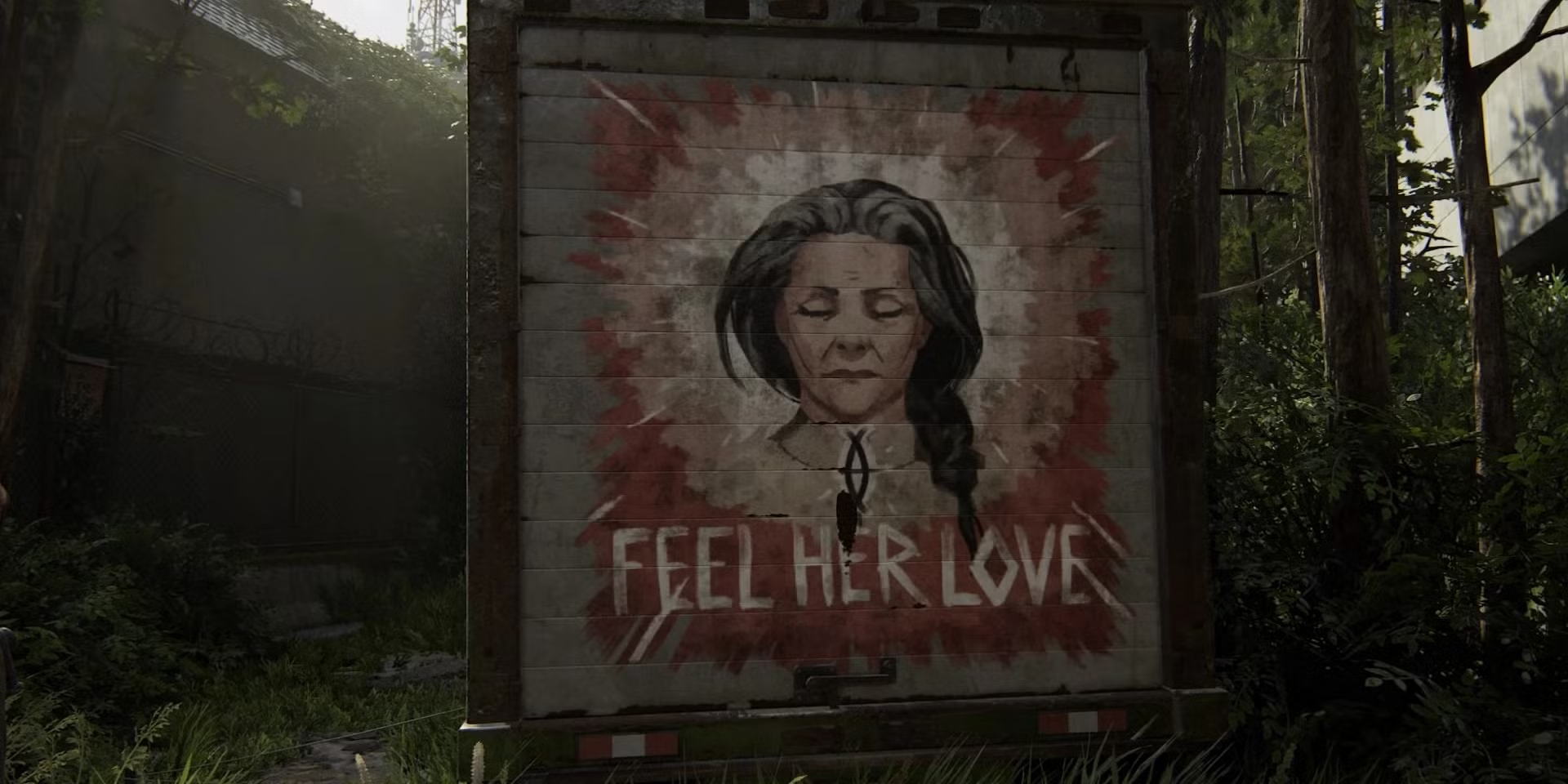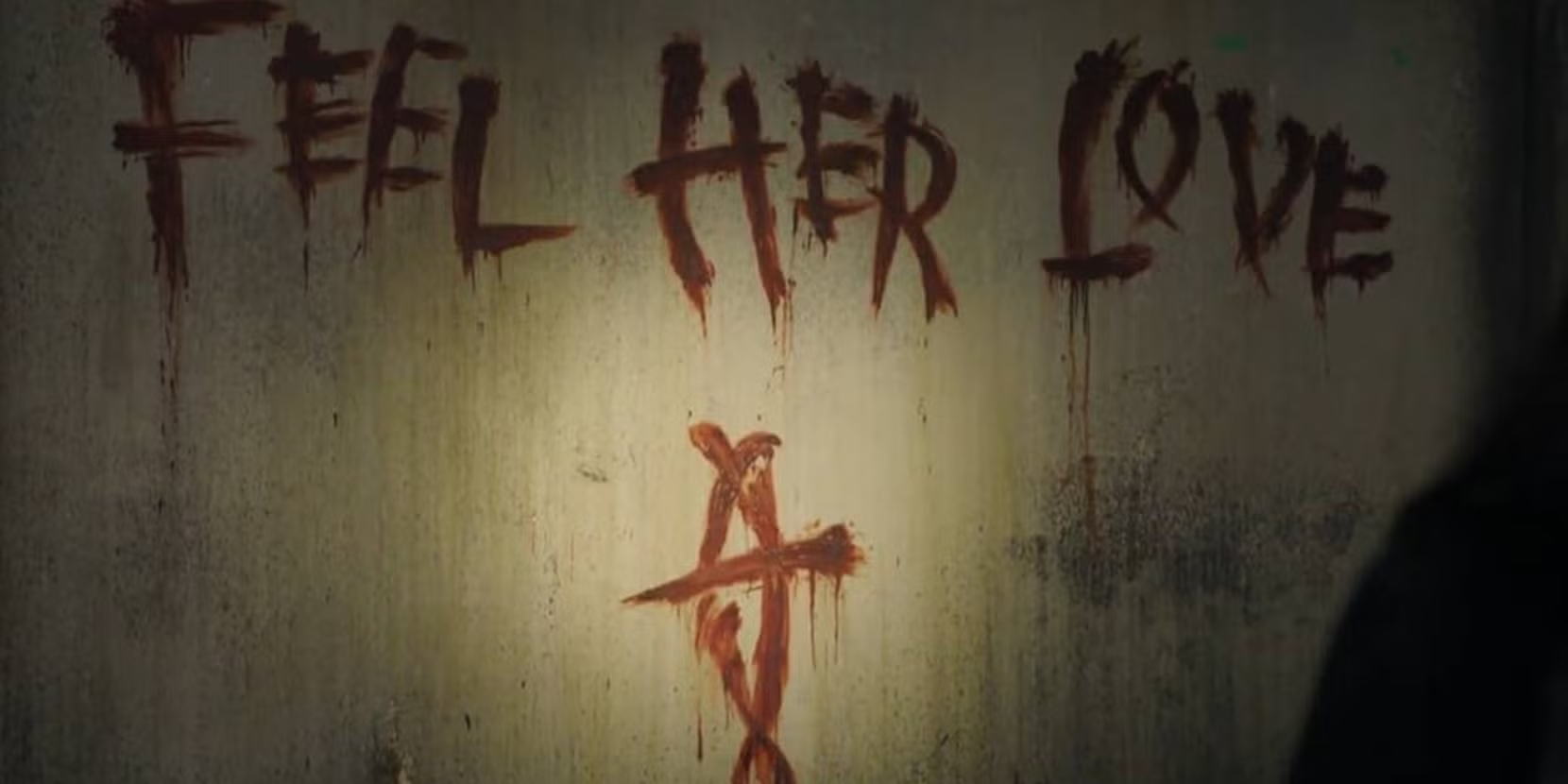Nothing says “love” like gutting your enemies and painting slogans with their blood.
That's what The Last of Us asks us to grapple with in Season 2, Episode 4. As Ellie and Dina delve deeper into a gutted Seattle, they stumble across a slaughterhouse of W.L.F. soldiers strung up like marionettes, their insides spilled with surgical precision. Next to this horror show? A blood-slicked message: “Feel her love.”
That single phrase—ominous, contradictory, and almost laughably twisted—is the key to understanding one of the most dangerous factions in the series: the Seraphites. It's also a mirror held up to the show's central obsession: how even the noblest ideals rot when passed through enough human hands.
Here's the uncomfortable truth: “Feel Her Love” doesn't mean what you think it means.
In theory, it's a mantra of comfort. A spiritual warm blanket. In practice? It's the Seraphites' battle cry—like if monks started branding people with “Namaste.” The woman who founded this post-apocalyptic religion envisioned peace, community, and a clean break from the decay of pre-outbreak society. Farming, whittling, carpentry—her values were rustic and almost utopian.

But fast-forward a few years, and her followers have become what every charismatic movement fears: zealots with knives and slogans they no longer understand. The Elders—who seized control after her execution—took the woman's gospel and turned it into an excuse for bloodletting. Sound familiar?
Remember Jonestown? Waco? Even ISIS?
History is littered with peaceful beginnings that mutated into nightmares once their messiahs died or were martyred. The Last of Us smartly taps into that recurring pattern. The Seraphites don't just worship their Prophet—they commodify her. They distill her vision into soundbites like “Feel her love” and “She guides me,” even as they defile what those words were meant to inspire.
It's not just storytelling; it's commentary. A bloodstained billboard for the dangers of blind faith.
This twist on spiritual language isn't new—but it hits harder here.
We've seen this trope play out before. Think The Book of Eli (2010), where the Bible becomes both a weapon and a salvation tool. Or Midsommar (2019), where peace-loving rituals spiral into pagan horror. But The Last of Us uses the medium of television to give these ideas texture. By showing us the Seraphites' evolution—not just through plot, but through haunting imagery, like slogans daubed in gore—it lets the horror simmer.
And Ellie? She's no savior. She's not a prophet. She's caught in her own moral decay, her revenge quest mirroring the Seraphites' descent into dogma. “Feel Her Love” isn't just a chilling detail—it's a thematic gut punch. It's what happens when love becomes a weapon instead of a cure.
You'll either love this or hate it. Here's why:
The Last of Us doesn't spoon-feed villains. It builds them from trauma, belief, and slow corruption. That's why “Feel Her Love” works—it's the story of a good idea mangled by grief, hierarchy, and the need to win.
So next time you hear that phrase in the show? Don't take it as doctrine. Take it as a warning.
Would you still follow her—knowing where the path ends?
Drop your thoughts (and your cult tattoos) in the comments.















